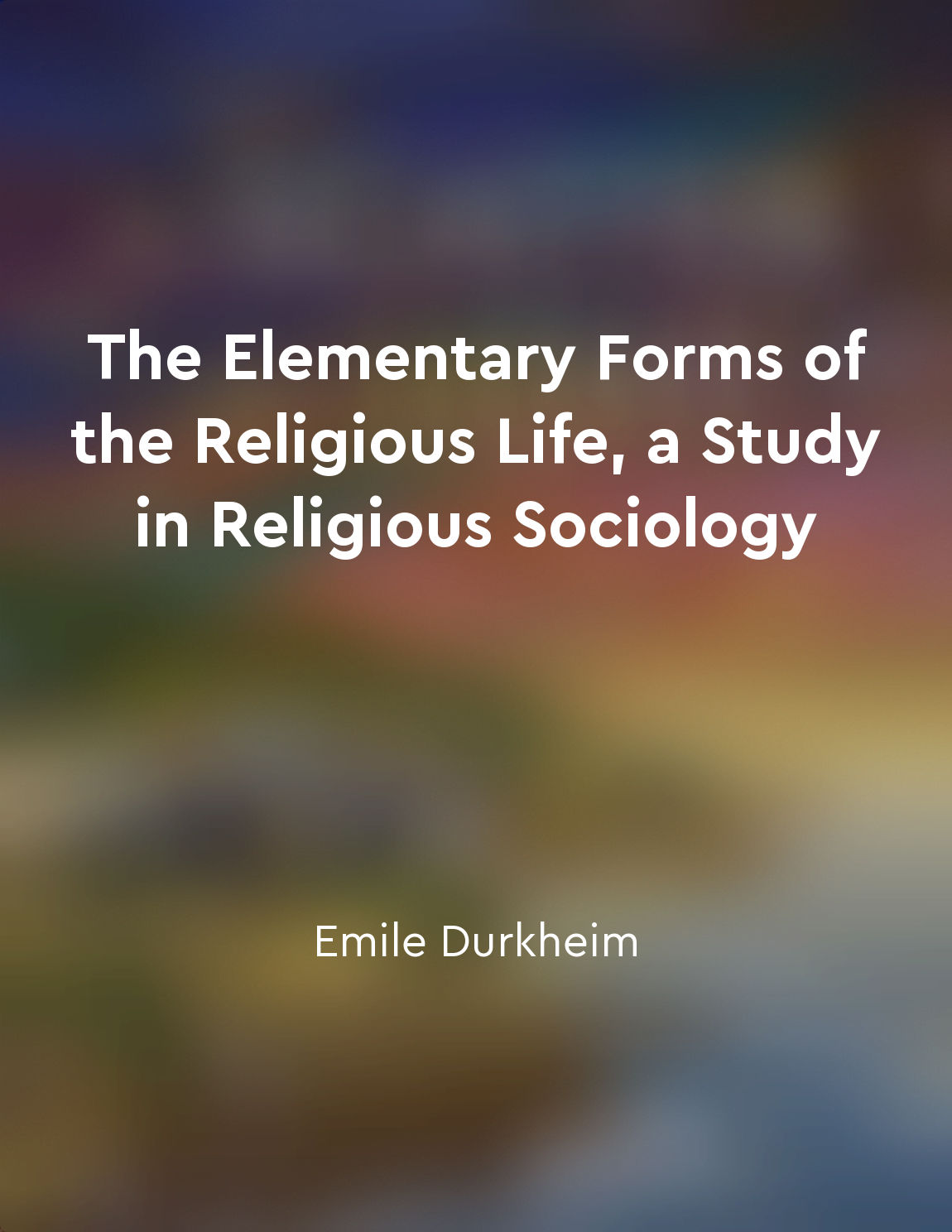Rituals are central to religious life from "summary" of The Elementary Forms of the Religious Life, a Study in Religious Sociology by Emile Durkheim
Rituals hold a significant place in the religious life of a community. They are not merely superficial practices, but rather serve as a fundamental component of religious beliefs and practices. These rituals are not arbitrary or random, but are deeply ingrained in the collective consciousness of a society. They serve to reinforce the bonds between members of the community and create a sense of shared identity and purpose. Through rituals, individuals are able to connect with something greater than themselves – whether it be a deity, ancestors, or spiritual forces. These rituals provide a sense of order and structure in the chaos of everyday life, offering a sense of comfort and security to believers. By participating in rituals, individuals are able to transcend their individual selves and become part of something larger and more meaningful. Rituals also serve to regulate social behavior and maintain social cohesion within a community. They provide a framework for interaction and communication, establishing norms and values that guide the actions of individuals. By adhering to these rituals, individuals demonstrate their commitment to the community and its beliefs, reinforcing the collective identity of the group. Furthermore, rituals play a crucial role in the transmission of cultural values and traditions from one generation to the next. Through participation in rituals, individuals learn about their history, heritage, and customs, ensuring that these traditions are preserved and passed down through the ages. In this way, rituals serve as a link between the past, present, and future, connecting individuals to their roots and shaping their sense of identity.- Rituals are not simply empty gestures or meaningless actions, but are central to the religious life of a community. They serve to unite individuals, transcend the individual self, regulate social behavior, and preserve cultural traditions. Without rituals, religious life would lack structure, meaning, and coherence, and the community would be at risk of losing its sense of identity and purpose. Thus, rituals are an essential aspect of religious life that should be valued and respected for their profound significance.
Similar Posts
The idea of a creator is unnecessary to explain the universe
Richard Dawkins argues that the concept of a creator is superfluous when attempting to explain the universe. According to Dawki...
Use creativity to navigate uncertain times
In times of uncertainty, when everything seems to be changing rapidly, it can be easy to feel overwhelmed and lost. However, it...
The practice of puja involves offering prayers and offerings to deities
The act of puja is a sacred ritual that holds great significance in the religious practices of India. It is a way for devotees ...

Collective effervescence is generated through religious rituals
Durkheim posits that collective effervescence is a fundamental aspect of religious rituals. It is the intense energy and excite...
The power of belief in rituals
The belief in rituals holds a deep power over the minds and actions of individuals, shaping their thoughts and behaviors in pro...
Worship of trees and plants
The worship of trees and plants has been a widespread and enduring practice throughout human history. This form of worship is r...

